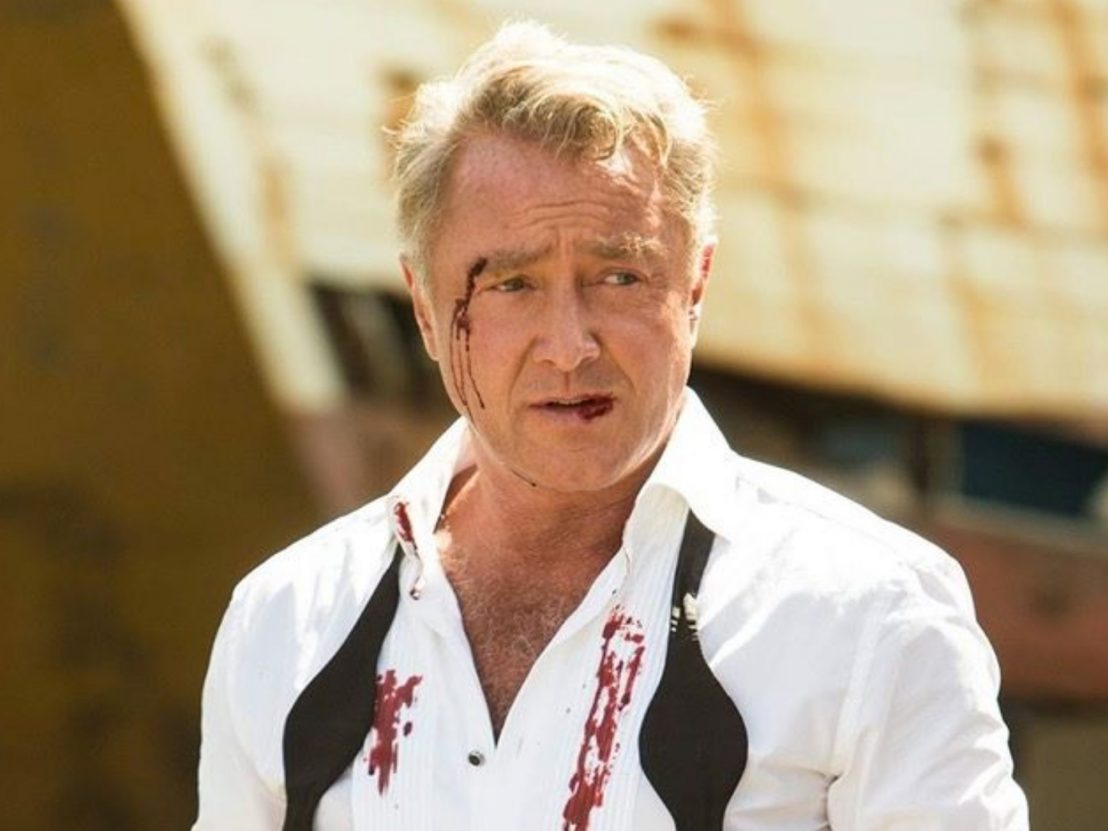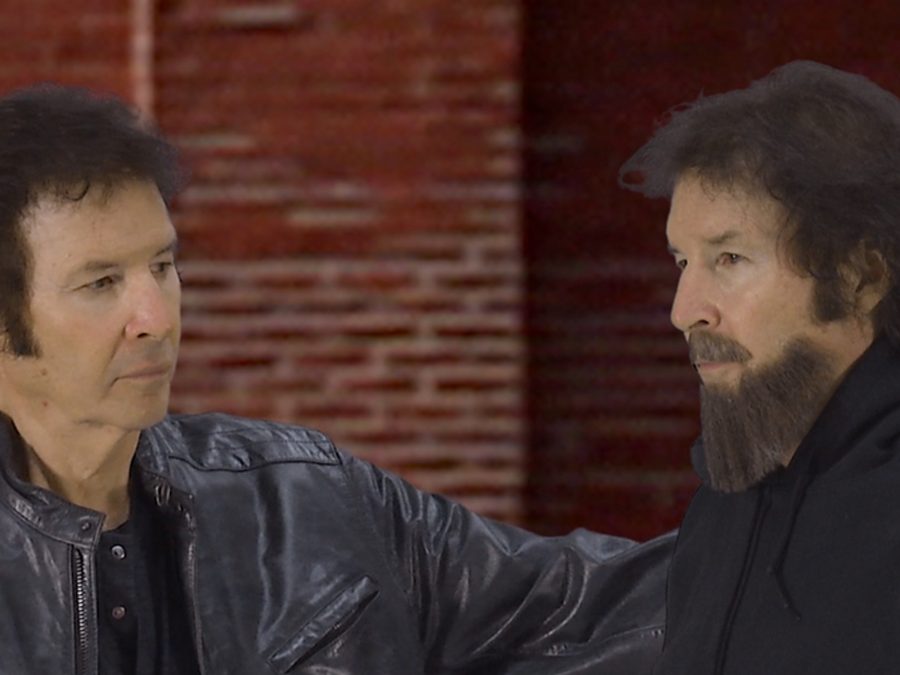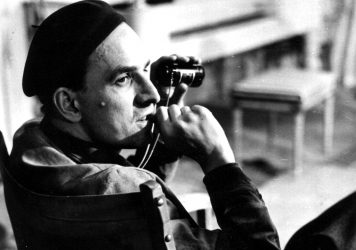
Few movies arrive with a wind beneath their wings quite like Michael Flatley’s Blackbird, which was produced in 2018 but will finally hit UK and Irish cinema screens September 2, 2022. The 64-year-old Lord of the Dance fancies himself as the next James Bond. Bad-films fans fancy him as the next Lord of Egosploitation.
A term bestowed to sub-par movies born of irrepressible egotism, ‘egosploitation’ flicks are typically written, financed and directed by their star, who often casts himself (it’s always a he) as an action hero or a messiah figure, and whose sexual conquests are about 10 times out of his league (and at least 10 years younger than him).
Hollywood has always been awash with auteurs who have the clout, the cash and the courage to write, direct, produce and star in their own feature films: Charlie Chaplin did it with 1921’s The Kid; Orson Welles with Citizen Kane 20 years later; and Barbra Streisand with Yentl in 1983. But these are Good™ films – self-important, perhaps, but also polished and professional. In the hands of fantasist filmmakers with big ideas and little experience, these vanity vehicles are much more likely to crash and burn.
“When Ben Affleck [co-produced], starred in and directed Argo and it won the Oscar, nobody called it egosploitation,” says Timon Singh, founder of the Bristol Bad Film Club and a day-one Blackbird obsessive. “It’s only egosploitation if it fails, and then it’s like, ‘Look at the ego on this bastard!’.”
Historically these ‘bastards’ have been responsible for some of cinema’s most howlingly good bad movies. Made by a man from who-knows-where with a chequebook as big as the chip on his shoulder, The Room is considered the Citizen Kane of egosploitation. Tommy Wiseau cast himself as a benevolent banker who is betrayed by his best friend and his fiancée, and the film feels like Wiseau’s sad exposé of these real-life deceptions.
“You know this is based on some past experience with Tommy,” says Singh, who has had multiple real-world interactions with Wiseau. “When it’s information about the lead character and they’ve written it, it’s like, ‘Oh, come on, mate’.” He adds that Wiseau makes himself out to be a “god among men” in the movie – “and that’s not relatable”.
Rob Hill, YouTuber and author of The Bad Movie Bible, likes his egosploitation directors more down-to-earth. His favourite? Steve Barkett. “It was his life’s passion,” says Hill. “He just wanted to be a movie star. He devoted everything to it. His two films are rubbish but they’re absolutely delightful, because you can feel the energy and faith he put into them.”
Both films, 1982’s The Aftermath and 1990’s Empire of the Dark, feature the US writer, producer, director and editor playing a father figure to his real-life son Christopher. The movies are shoddy but the love is evident. Barkett’s movies feel more like realisations of long-held dreams than acts of social reprisal or power-fantasy posturing. The same cannot be said for Wiseau. Or Neil Breen.
Breen exemplifies egosploitation. His five films border on art brut – naïve art typically produced by prisoners, children and the mentally ill, people whose pure creative impulses are unsullied by social expectation and formal education. They’re so far removed from popular wisdoms about the language of cinema that they unfold like alien approximations of earthly art.
“Neil Breen has no self-awareness, almost to the point of it being a medical condition,” says Hill. “He’s making what he sees as an art film, which is very much what Tommy Wiseau did. Because they’ve got a screw loose, they can’t gauge how much of themselves to give away, how obvious to make the autobiographical aspects, how vulnerable to be, so they often go way overboard and reveal more of who they are than they ever imagined they would.”
Little is known about Breen, but his narratives betray a score of deep-seated insecurities: identity anxiety; distrust of authority; relationship issues; an insatiable bloodlust… With egosploitation, “you’re looking at someone’s deepest and darkest fantasies,” says Singh, “and their ideal versions of themselves”. Breen’s? A messianic avenger-cum-computer hacker with superhuman abilities and a super-sexy love interest.

So what of Flatley? Who does he want to be seen as? And why are we so convinced that Blackbird is going to crash-land in egosploitation territory anyway?
The spy thriller, which the fleet-footed Irish-American wrote, funded, produced and directed, sees him playing dress-up as former MI6 operative Victor Blackley, whose Barbados retirement is upended by the arrival of an old flame (who is, you guessed it, at least 10 years younger than him). Critics have been belittling Blackbird since its emergence in 2018, but following its premiere at that year’s Raindance Film Festival, the rumours really began to fly. Why? Blackbird went AWOL. Was the film so bad that Flatley’s publicists clipped his wings to protect his image? Did it get sent back to the editing bay? Did Flatley fancy doing some more ‘field research’ in the Caribbean?
We may never know the reasons for the film’s four-year delay, but we can at least speculate on Flatley’s motives for making it. “I think a lot of these film-makers have aspirations of being superheroes or something,” says Singh of directors like Breen and the insufferable Stephen Groo. “Somewhere along the way, these dreams were shattered. Their films are a way of filling that emptiness.”
Flatley has already lived this dream. He spent decades touring his global show Lord of the Dance, in which he played a godlike being who saves the world. Flatley retired from the stage in 2016, but having written, produced and choreographed world-beating stage shows, his skills are well suited to cinema – and Blackbird affords him another opportunity to play the saviour.
While ex-MI6 man Victor Blackley isn’t exactly a relatable character, the will to portray him is. In giving himself a gun and a goal, Flatley is indulging the same ego-driven toybox action fantasies that the likes of John De Hart and Ron Marchini did with their movies. But unlike these filmmakers, Flatley isn’t a nobody. He’s a celebrated artist with a big budget and a reputation to uphold, which makes this act of public-facing hubris all the more hazardous.
Blackbird finally takes flight on 2 September, and with no programmers planning to show the film in the South West, Singh decided to do it himself. He’s screening it on a 19×15 metre former IMAX screen – almost certainly the biggest that Flatley’s face (and feet) will ever appear on. “I’m really excited,” says Singh. “We’re just assuming it’s going to be terrible. But what if it’s great? That’s what I’m fascinated by. That’s the anticipation. I would not count Michael Flatley out.”
So is this a win-win for bad-film fans? If Blackbird does crash-land, we get the egosploitation disaster many were quietly hoping for. But if Flatley soars beyond expectations, we get pleasantly surprised with a perfectly entertaining spy flick.
Either way, with Blackbird, Flatley joins a rarefied list of film-makers: Chaplin, Welles and Streisand, sure, but also Tommy Wiseau, Neil Breen, Steve Barkett, Stephen Groo, Ron Marchini and John De Hart. Say what you want about their movies, they’re all auteurs.
Published 30 Aug 2022

By Anton Bitel
A group of medical students push the boundary between life and death in this bombastic thriller.

It’s a Franco bros two-for-one in this madcap making-of yarn about Tommy Wiseau’s The Room.

There’s a fascinating backstory to the Swedish master’s little-seen 1950 thriller This Can’t Happen Here.